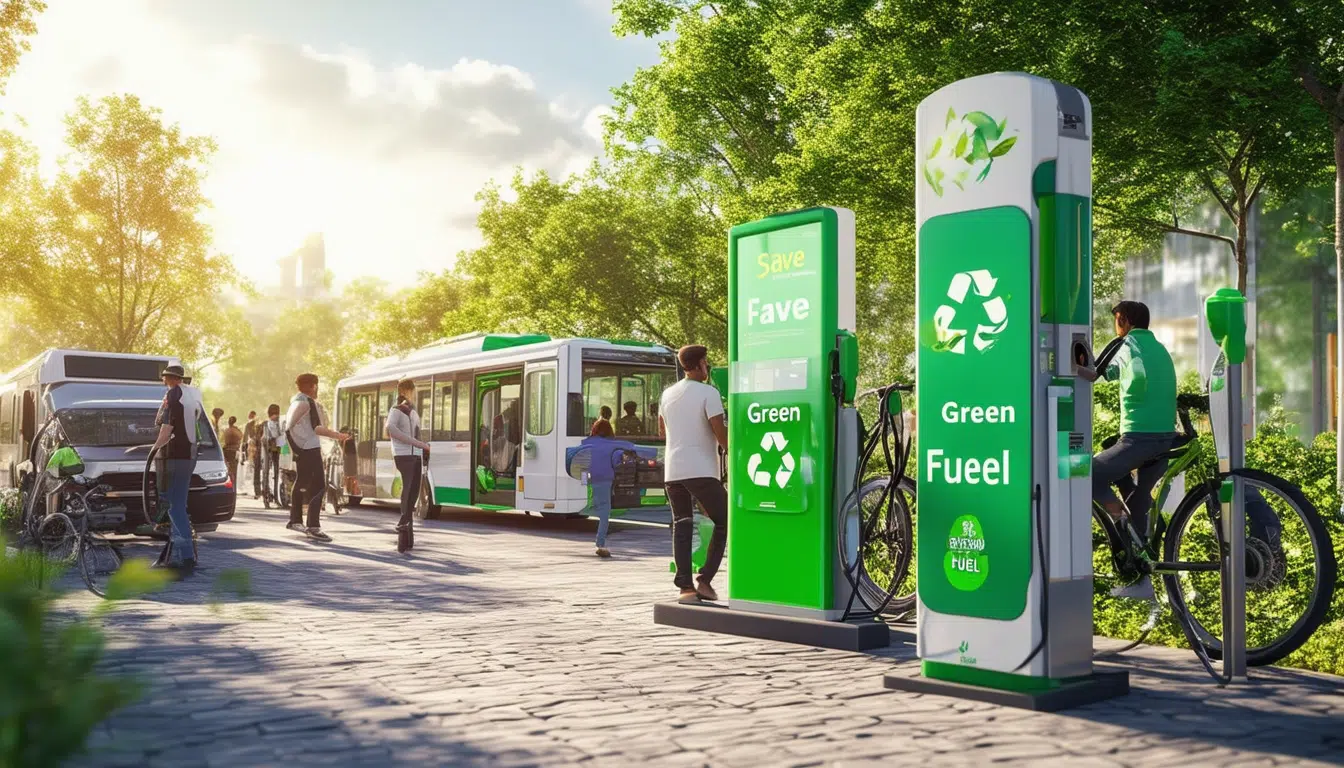Estrategies for green marketing to minimize fuel expenditure

In a world where sustainability and environmental responsibility are increasingly relevant, green marketing strategies have become an essential tool for companies looking to minimize fuel expenses. Adopting eco-friendly practices not only contributes to environmental protection but also enhances profitability and brand image. Implementing actions that promote energy efficiency, the use of alternative fuels, and the optimization of logistics are key steps for companies to align with current sustainability trends.
The implementation of green marketing strategies is crucial for companies to reduce their fuel expenses and, in turn, decrease their environmental impact. These strategies not only improve operational efficiency but also strengthen brand image and connection with conscious consumers. Below are various tactics that organizations can adopt.
Logistics Optimization
One of the main ways to reduce fuel expenses is by optimizing logistics. This involves reviewing and improving distribution routes, which will not only minimize fuel use but also help reduce emissions. Additionally, implementing technologies that allow for more accurate tracking of the supply chain can contribute to more efficient logistics.
Efficient Storage and Distribution Systems
Implementing efficient storage and distribution systems is fundamental. This includes the use of automated warehouses and distribution methods that maximize space utilization and minimize unnecessary movement. As a result, fuel consumption can be reduced, and the resources used can be optimized.
Use of Alternative Fuels
Companies can opt for the use of alternative fuels that are less polluting than fossil fuels. Analyzing options such as biofuels, electricity, or even solar energy for operations can be a valuable strategy. This not only helps reduce environmental impact but can also lower costs in the long run.
Proper Fleet Maintenance
Regular and proper maintenance of the vehicle fleet is crucial to maximizing fuel efficiency. Ensuring that vehicles are in optimal condition, with correct tire pressure levels and a well-tuned engine, can result in lower fuel consumption. This practice not only enhances sustainability but also ensures significant savings in operational expenses.
Promoting Responsible Consumption
Encouraging responsible consumption among customers can be an effective strategy. This involves educating consumers on the importance of choosing products and services that have a lower environmental impact and promote sustainability. By encouraging responsible behaviors, companies can reinforce their image as sustainable brands.
Effective Communication of Sustainable Actions
It is important for companies to effectively communicate their actions and commitments toward sustainability. Utilizing digital platforms to share achievements in ecological policies and improvements in resource management can attract a broader audience that values environmental commitment. This not only builds trust but can also generate long-term engagement from consumers.
Adopting these strategies not only offers economic benefits to companies but also contributes to a cultural shift towards sustainability. This aligns with the growing demand from consumers for more responsible and sustainable options in the market.
For more information about the impact of sustainability in the automotive industry, visit here. You can also explore how other industries, such as aviation, are making the shift towards more sustainable practices through initiatives like Air Europa’s most sustainable flight from Madrid to Santo Domingo, which you can check here, or the upcoming transition of MotoGP, whose decision will be made soon, available here.
Sustainability has become an essential aspect of the business strategy for many companies, especially regarding fuel expenses. Implementing green marketing practices not only helps reduce costs but also enhances brand image among an increasingly environmentally conscious audience.
One of the most effective strategies to minimize fuel expenses is the optimization of transportation routes. By analyzing and adjusting distribution routes, companies can reduce fuel consumption and emissions, which not only aligns with environmental commitment but also represents significant savings in operational costs.
Additionally, the use of alternative fuels and sustainable technologies, such as electric or hybrid vehicles, is another key approach. These alternatives not only help decrease environmental impact but can also result in reduced fuel expenses in the long term, making the company more competitive.
Implementing proper fleet maintenance is equally crucial. A well-maintained vehicle is more fuel-efficient; therefore, companies should pay attention to this aspect. This, combined with employee education on efficient driving practices, can lead to a notable decrease in operational costs.
Finally, developing sustainable products and using eco-friendly materials in production also contribute to a robust brand image that attracts responsible consumers. This creative direction not only offers added value but also aligns the company with the principles of sustainable marketing, paving the way for a greener future.





